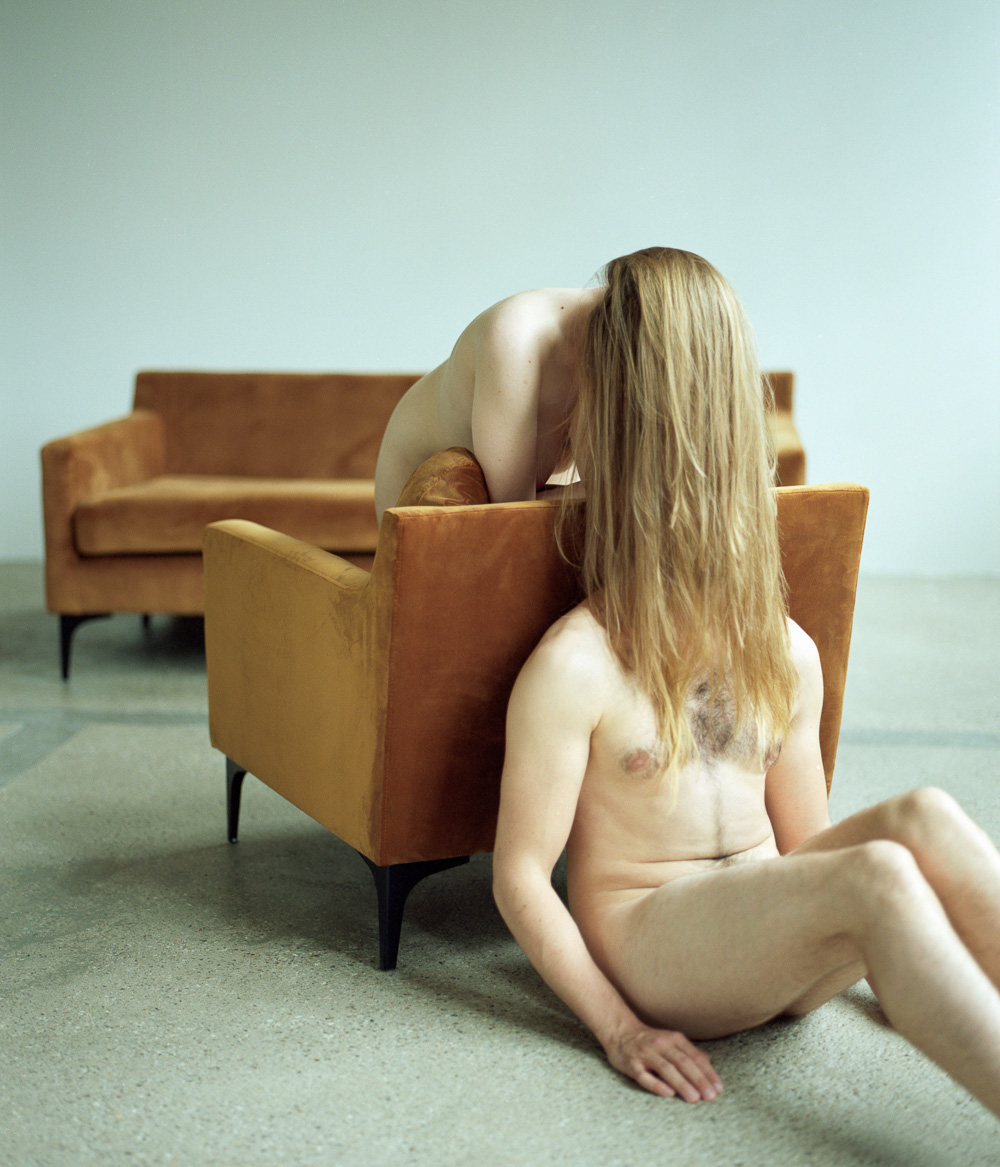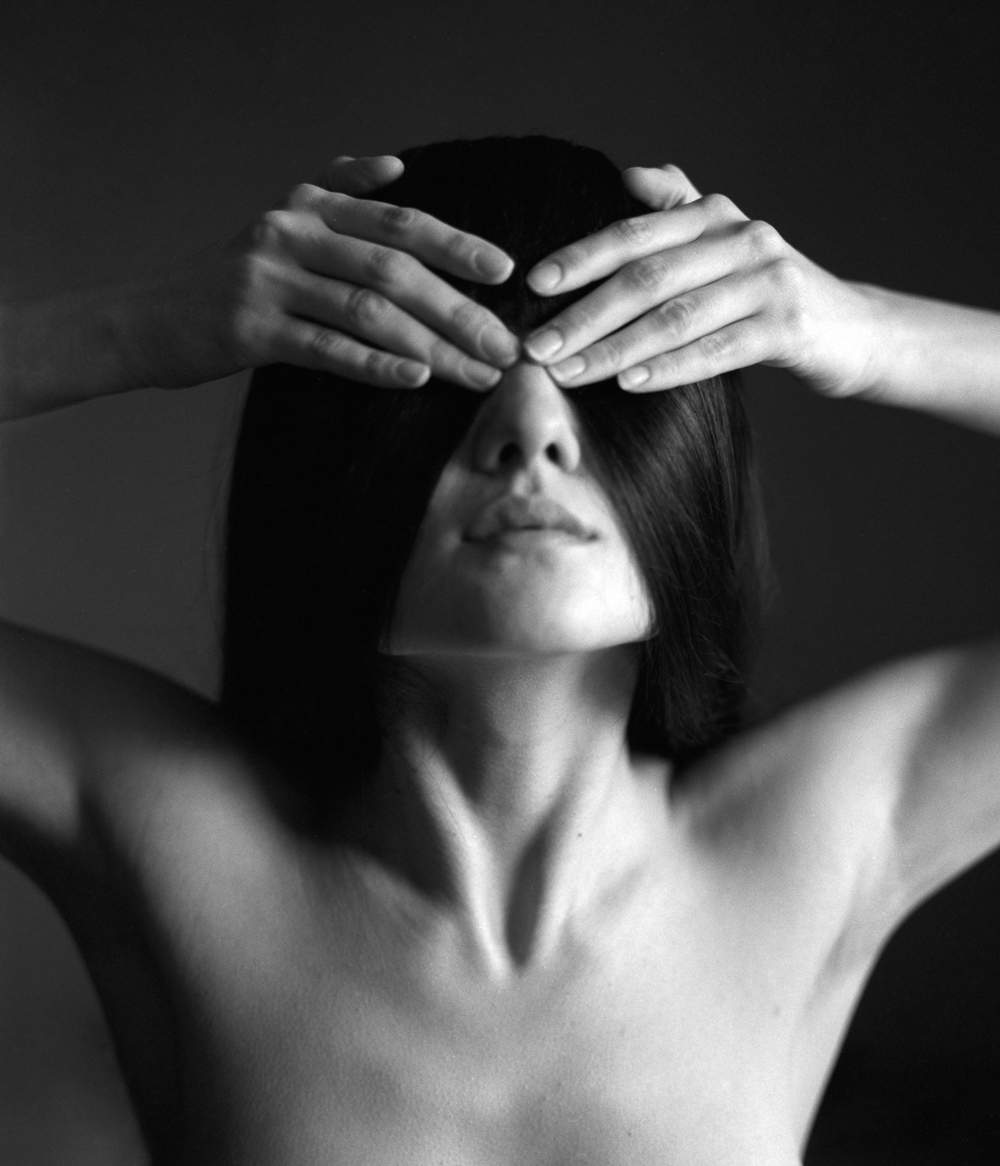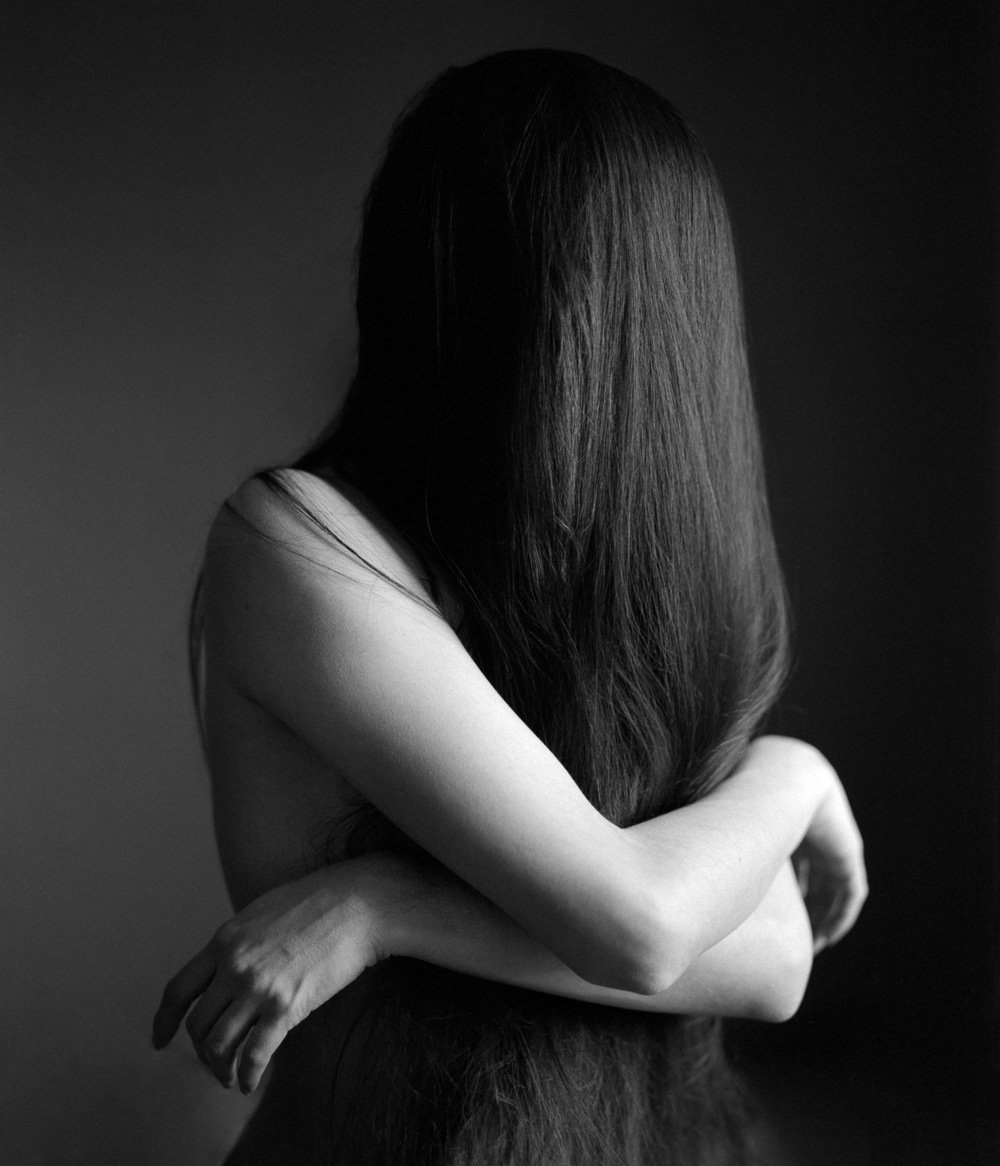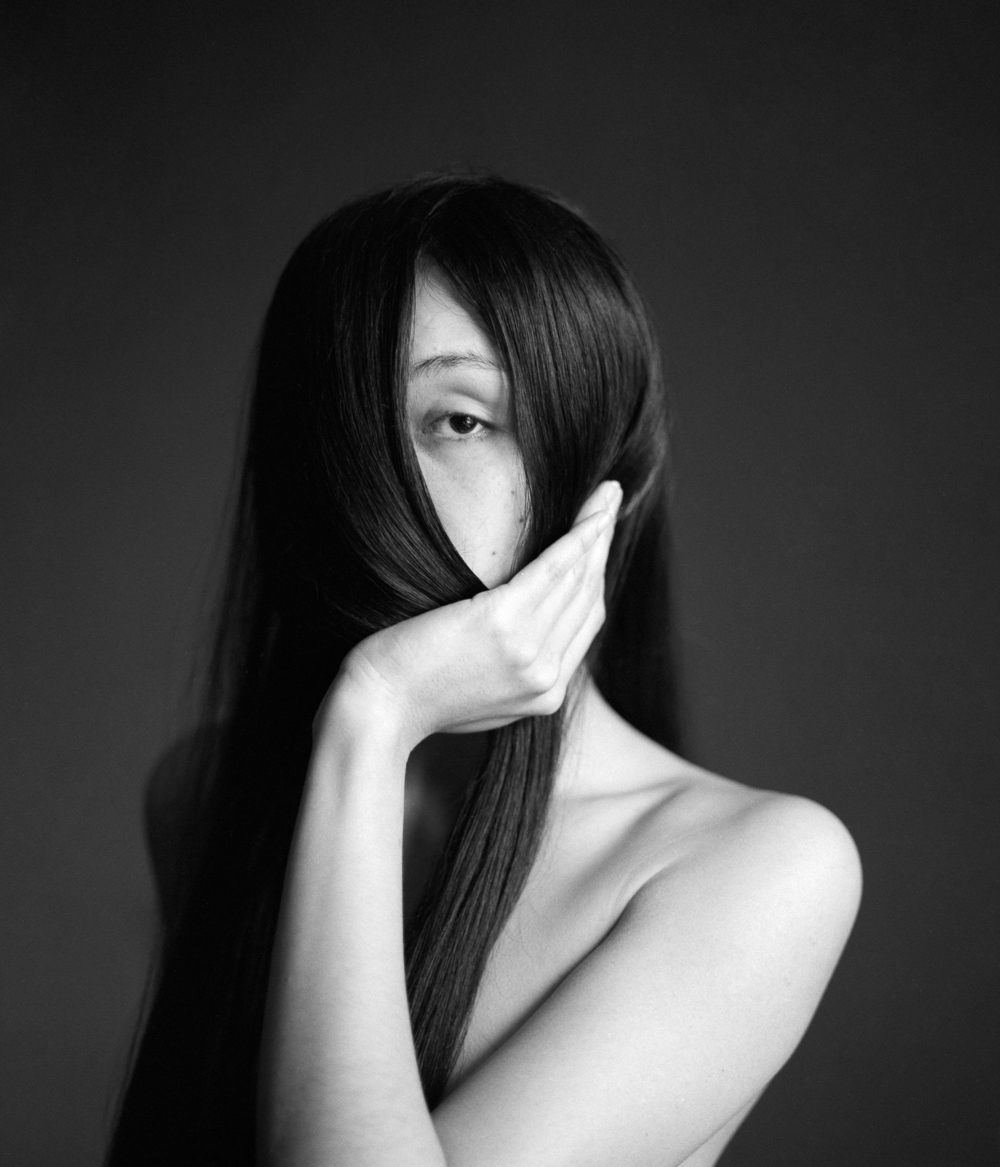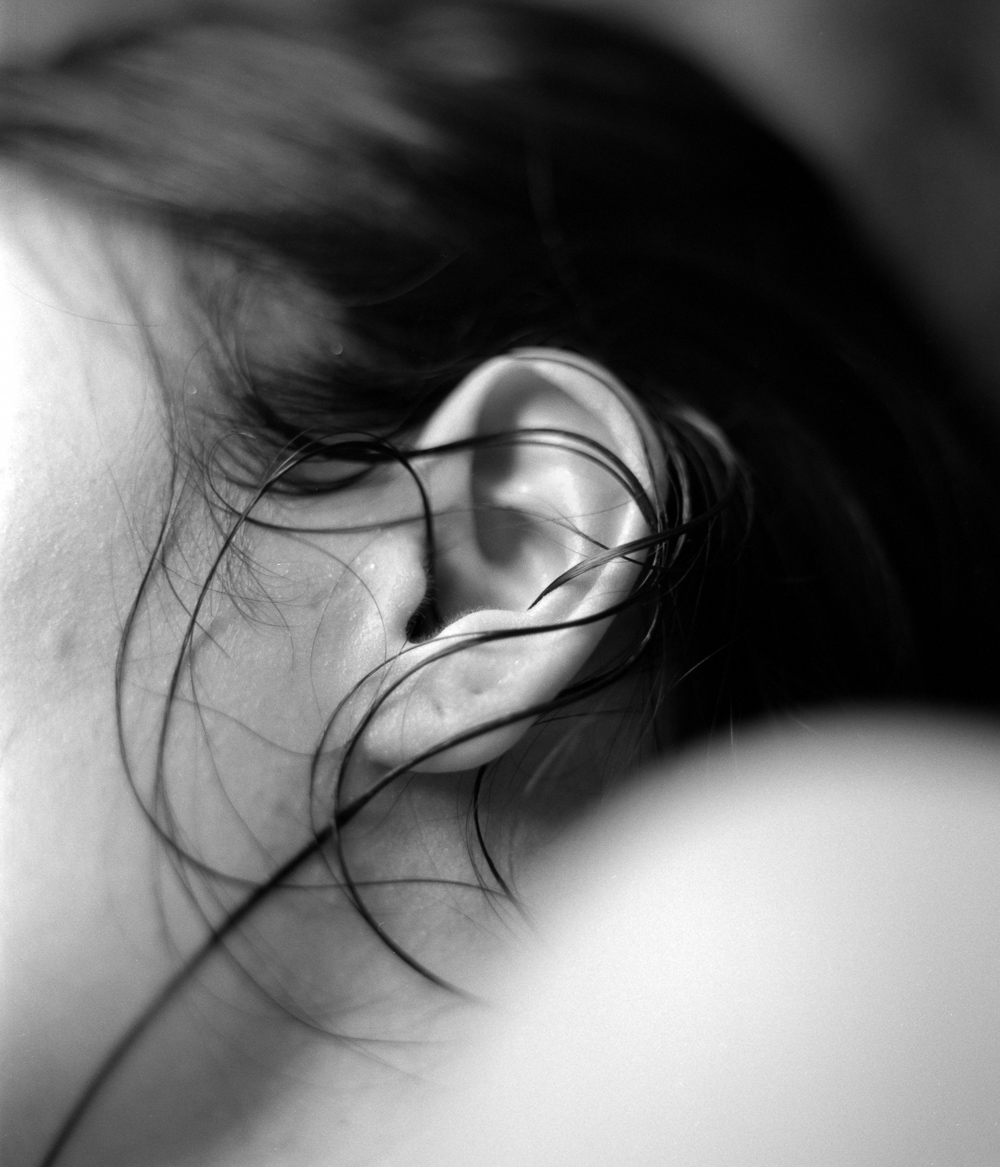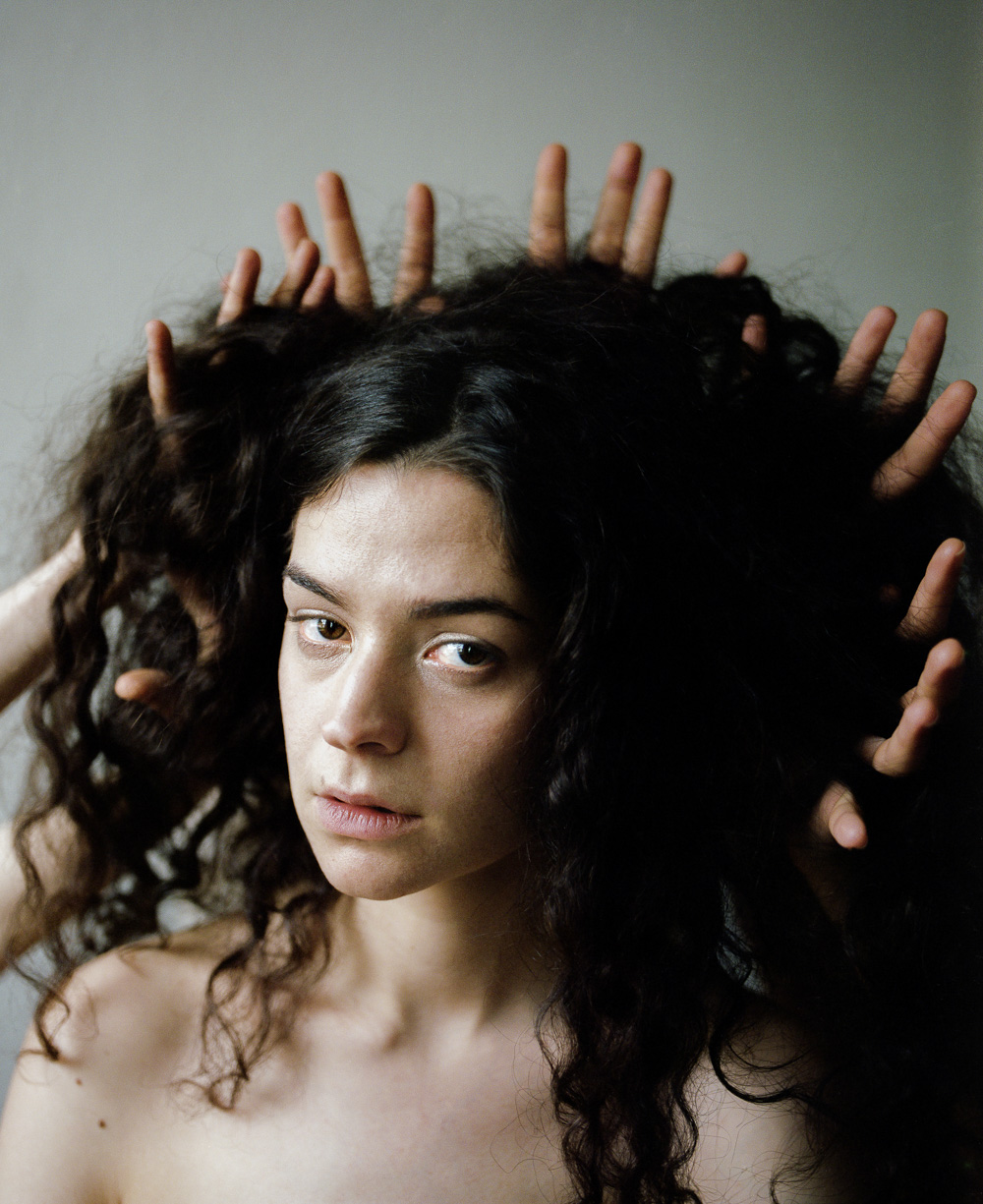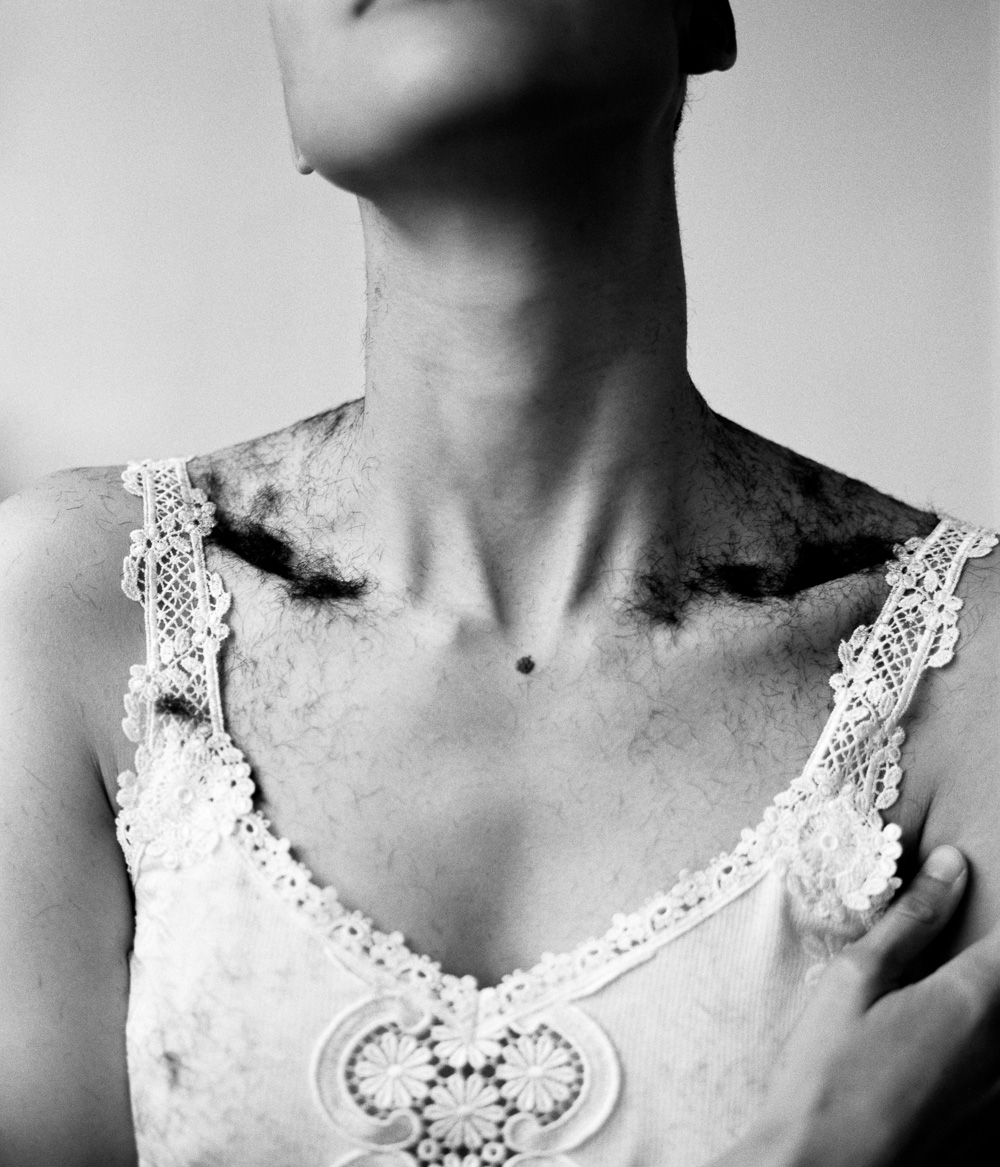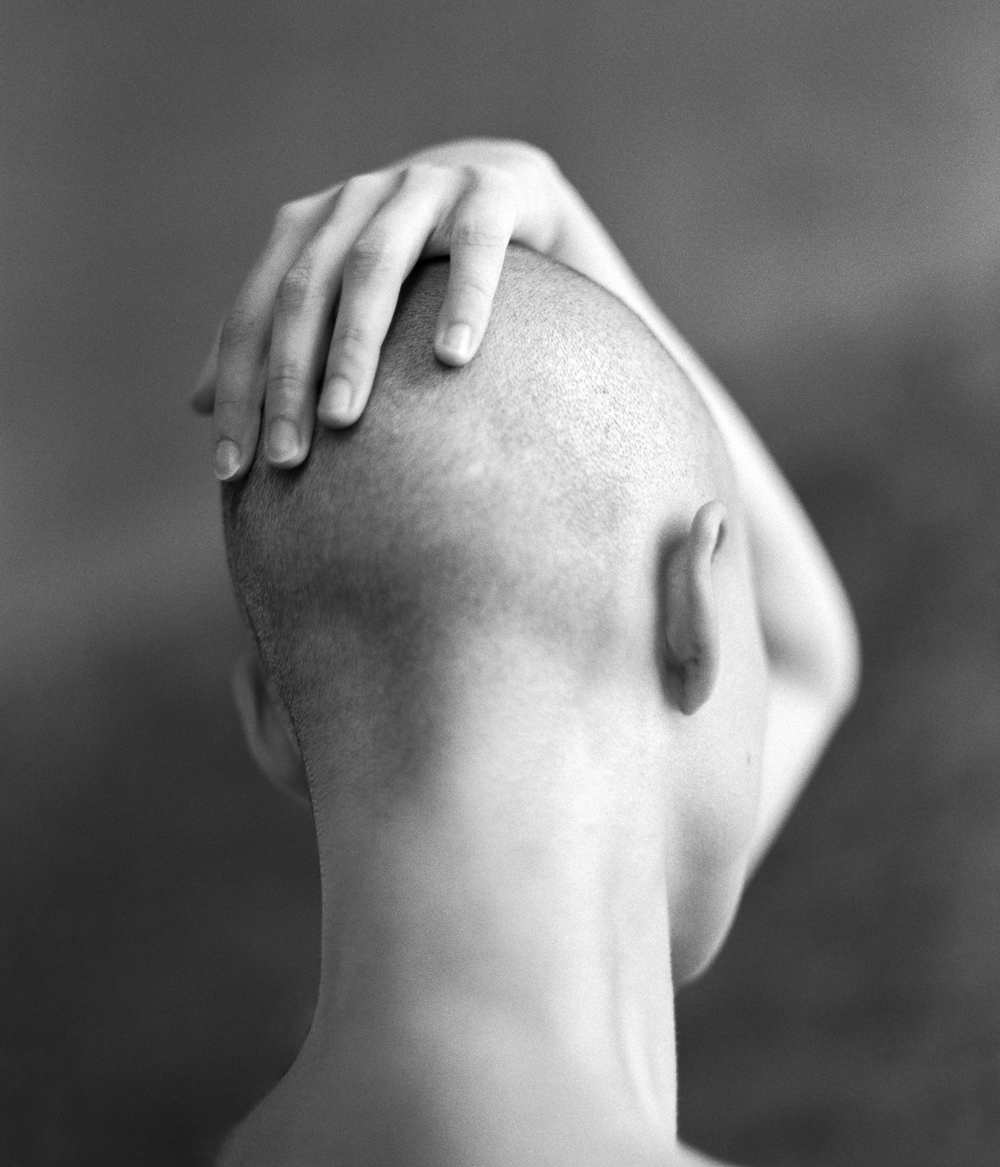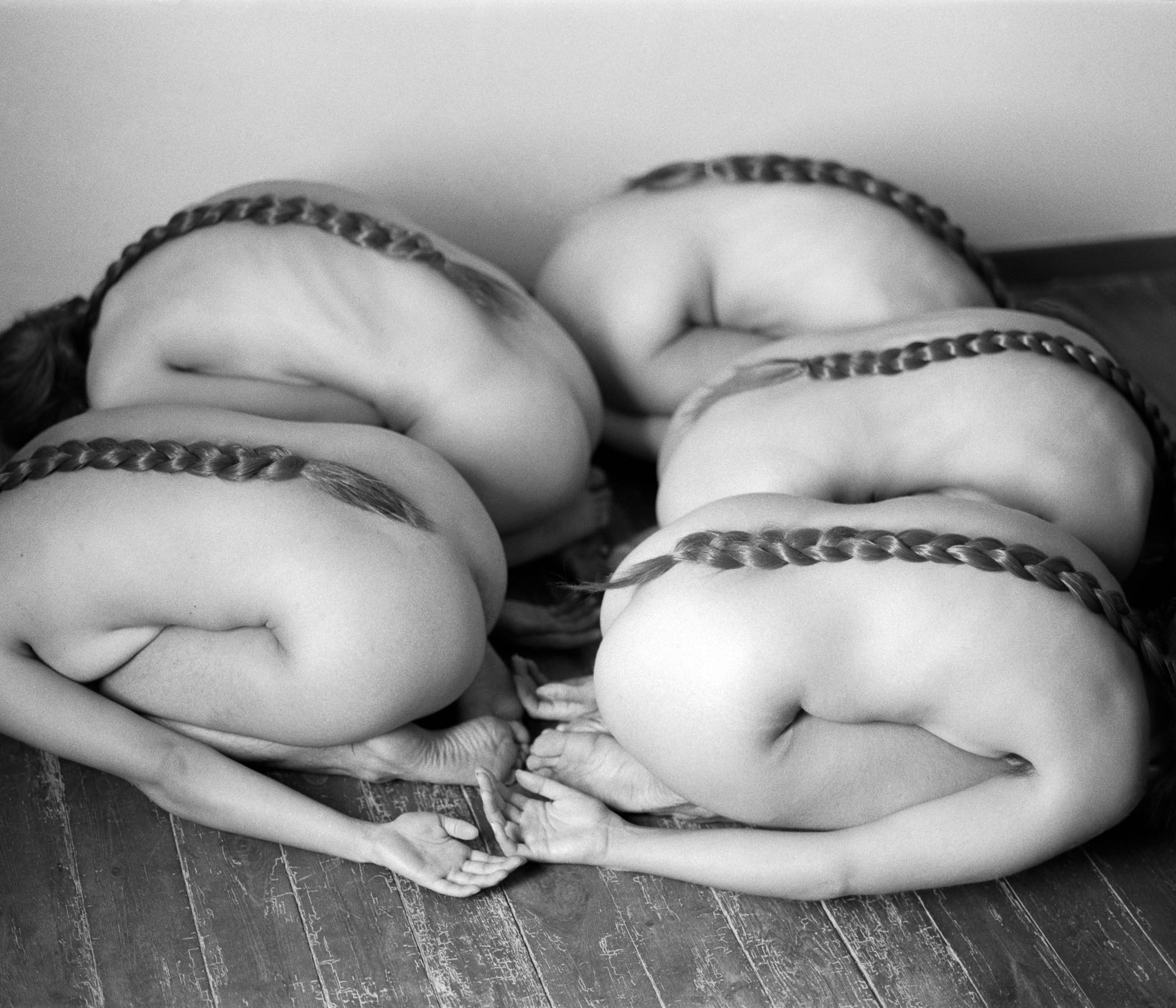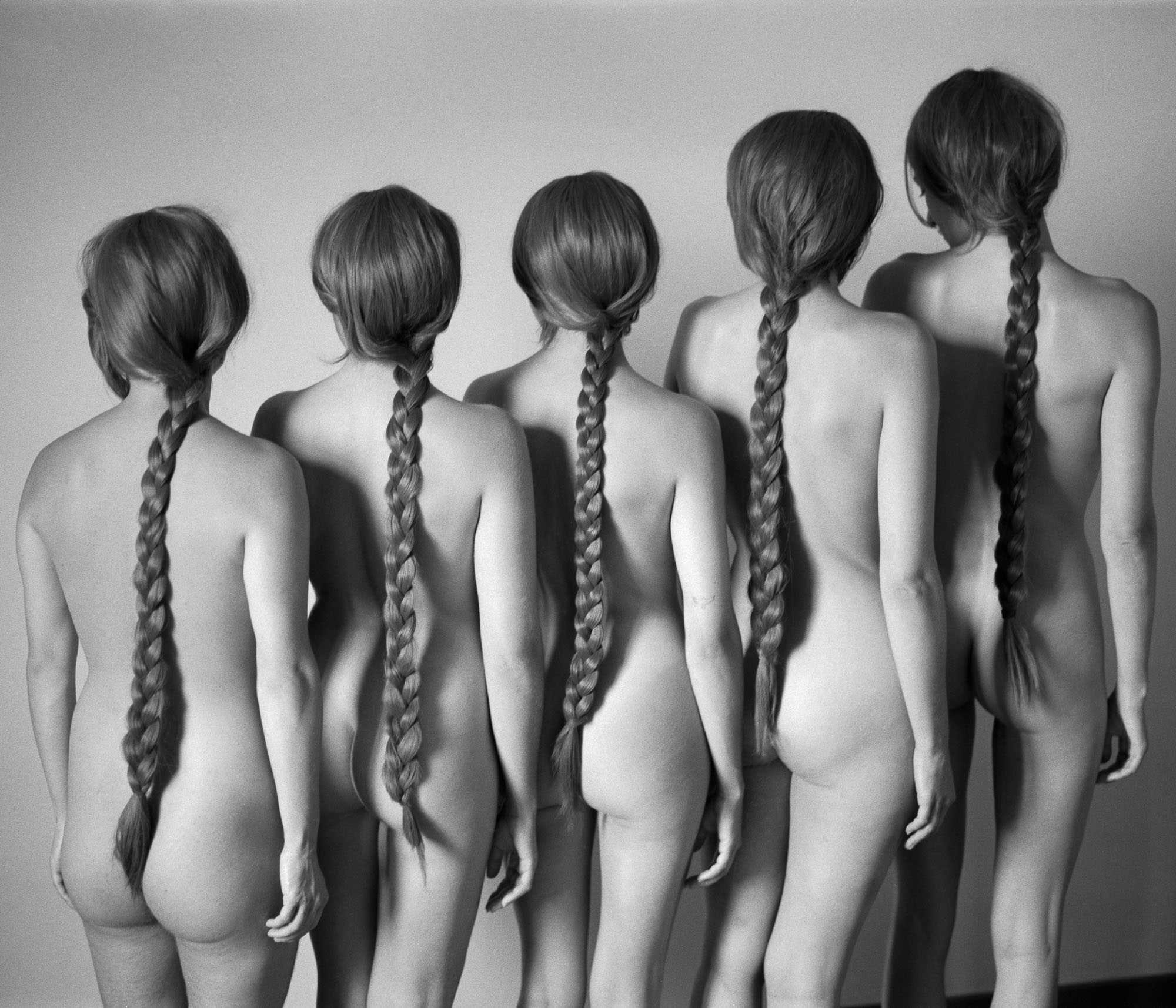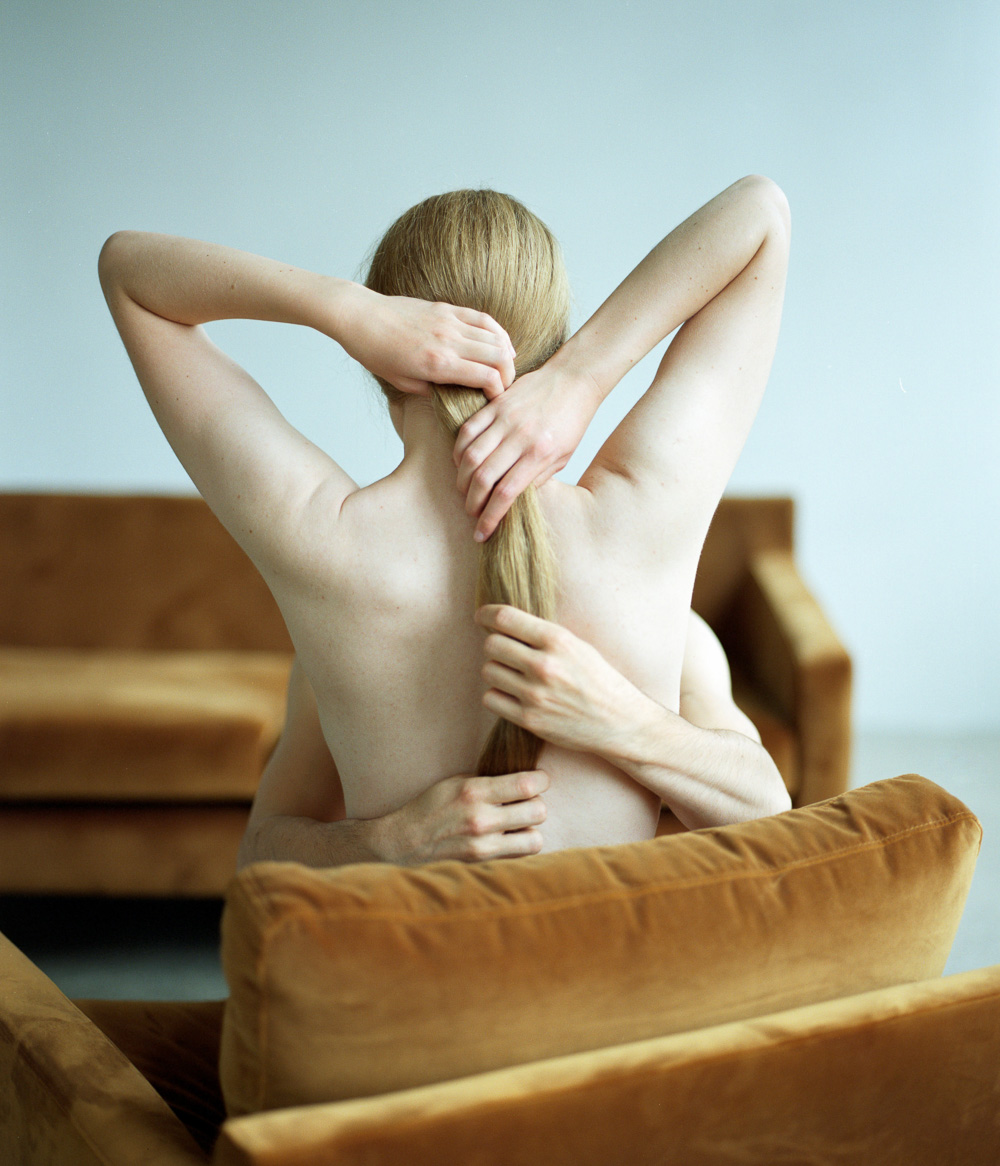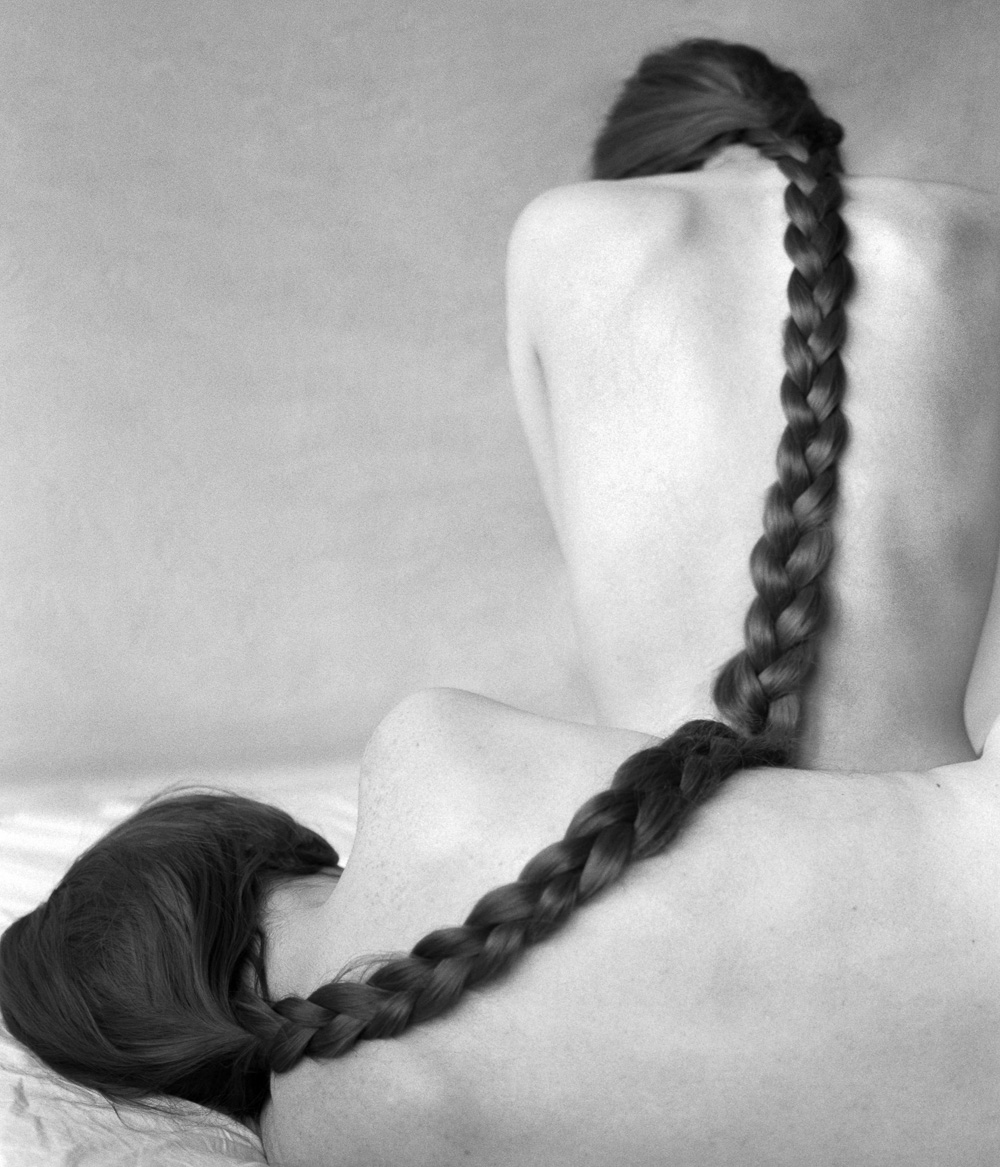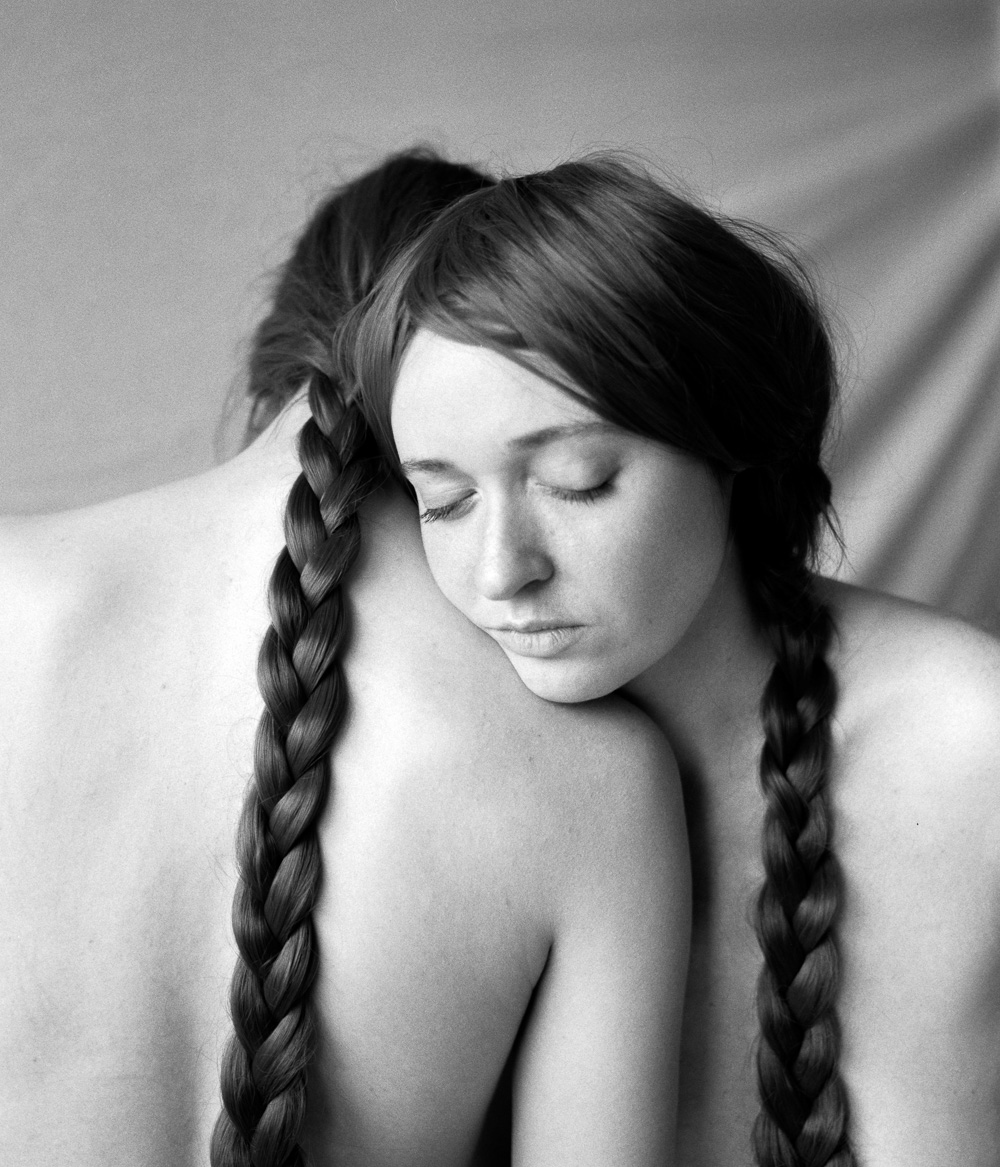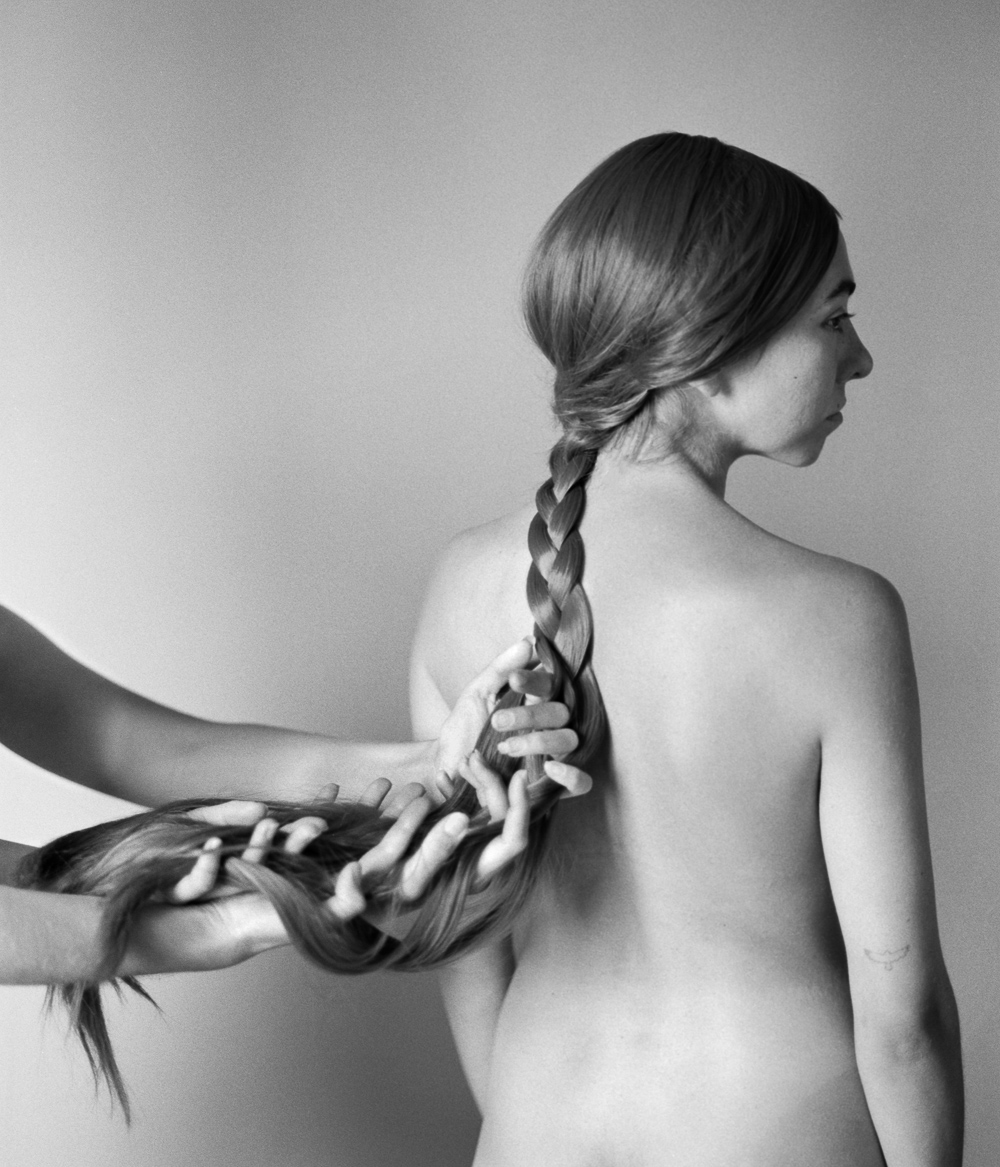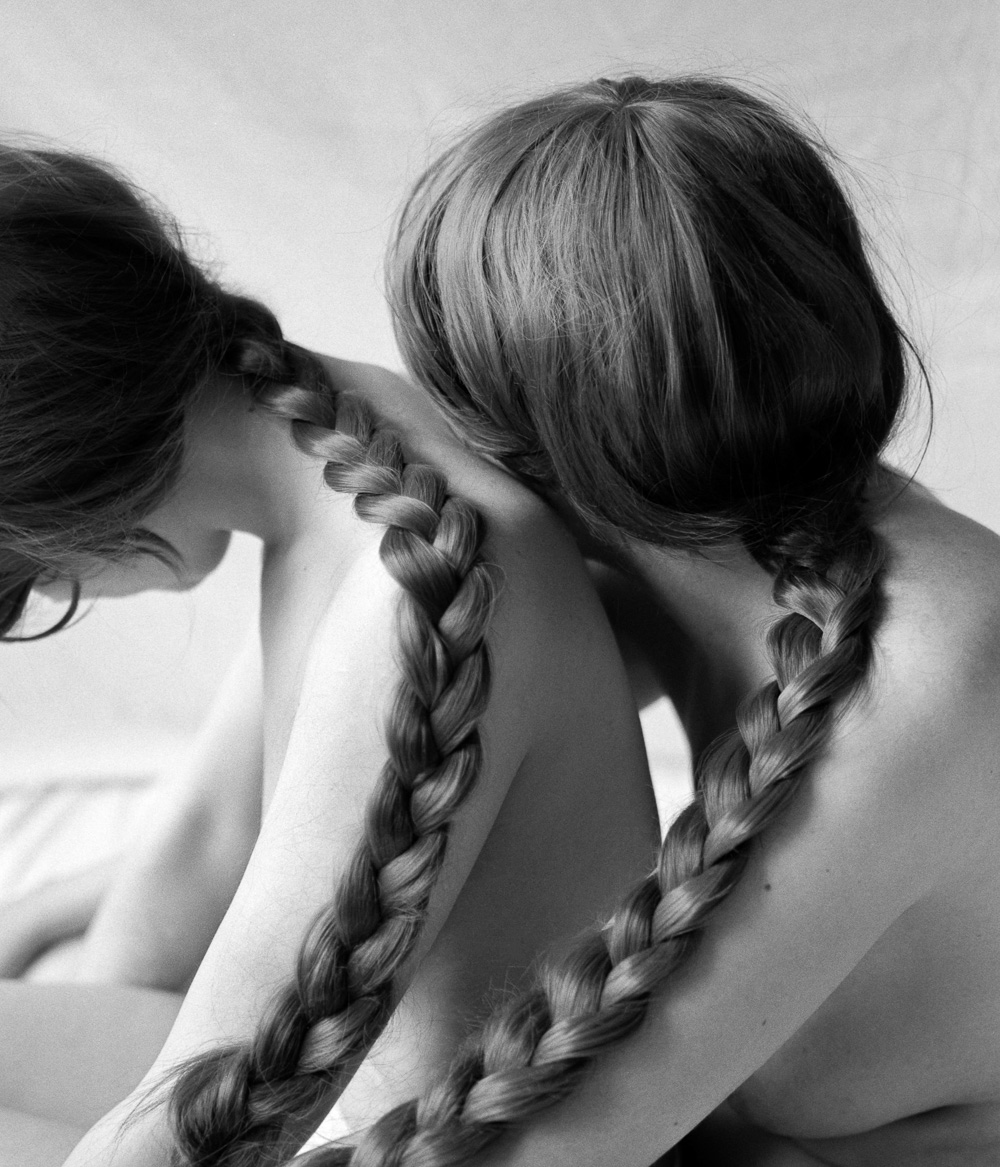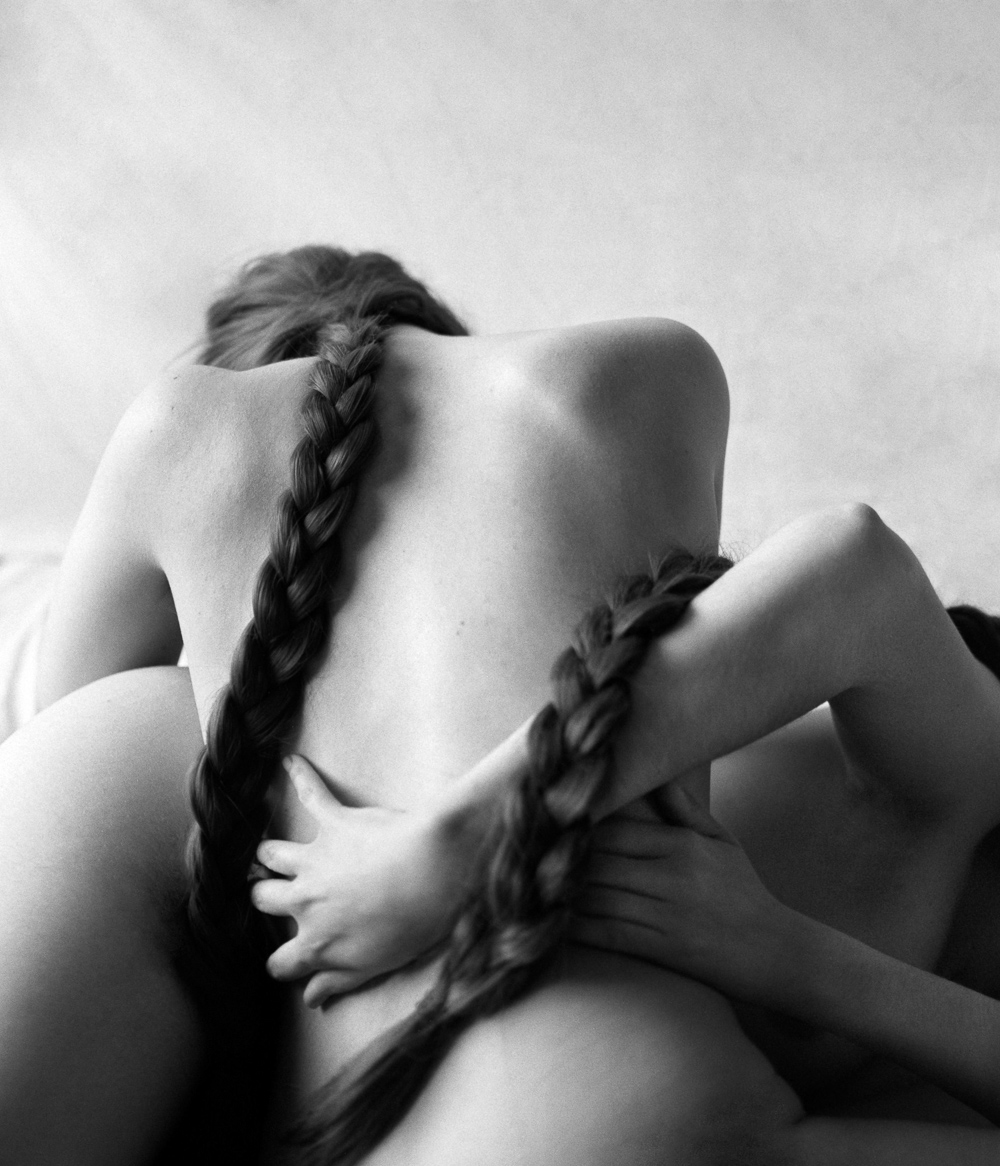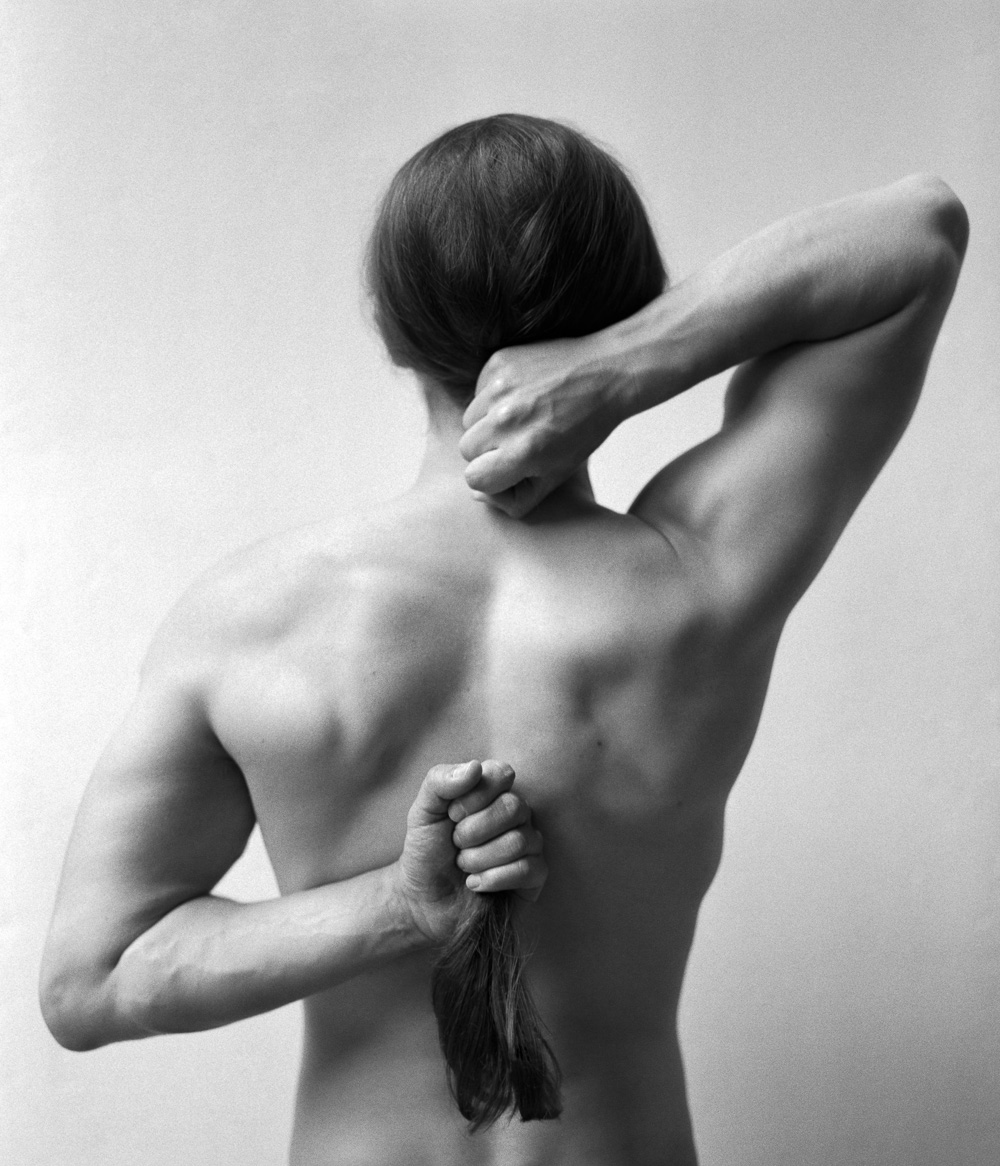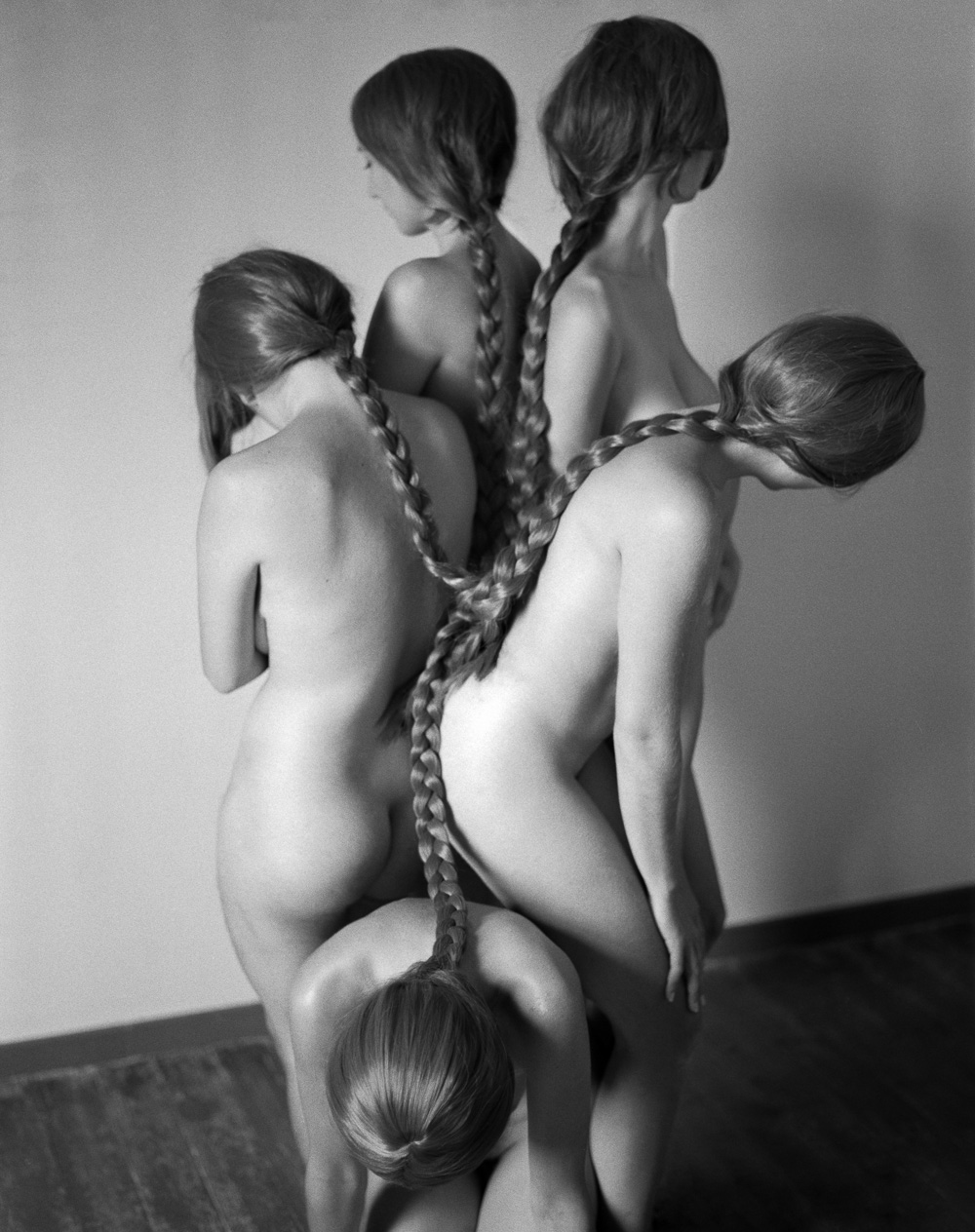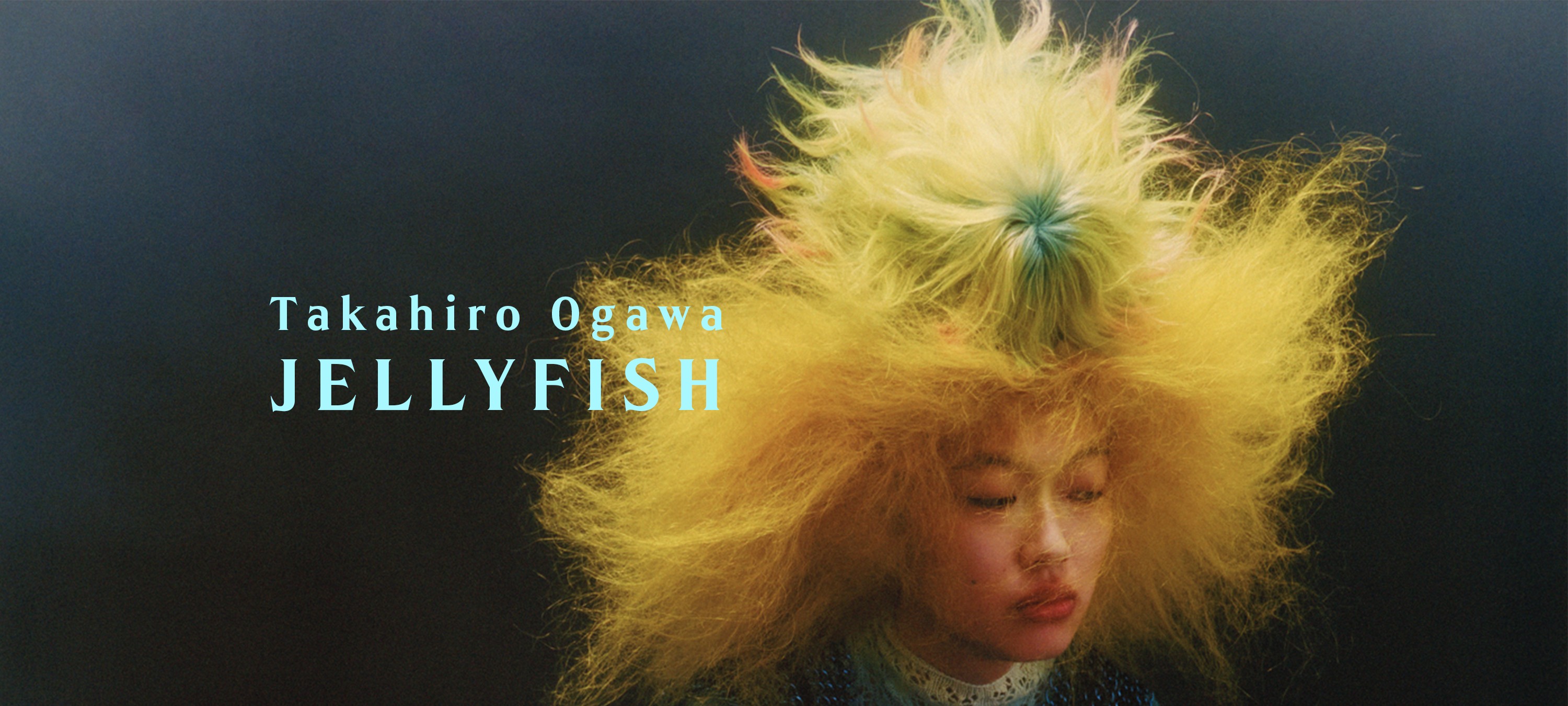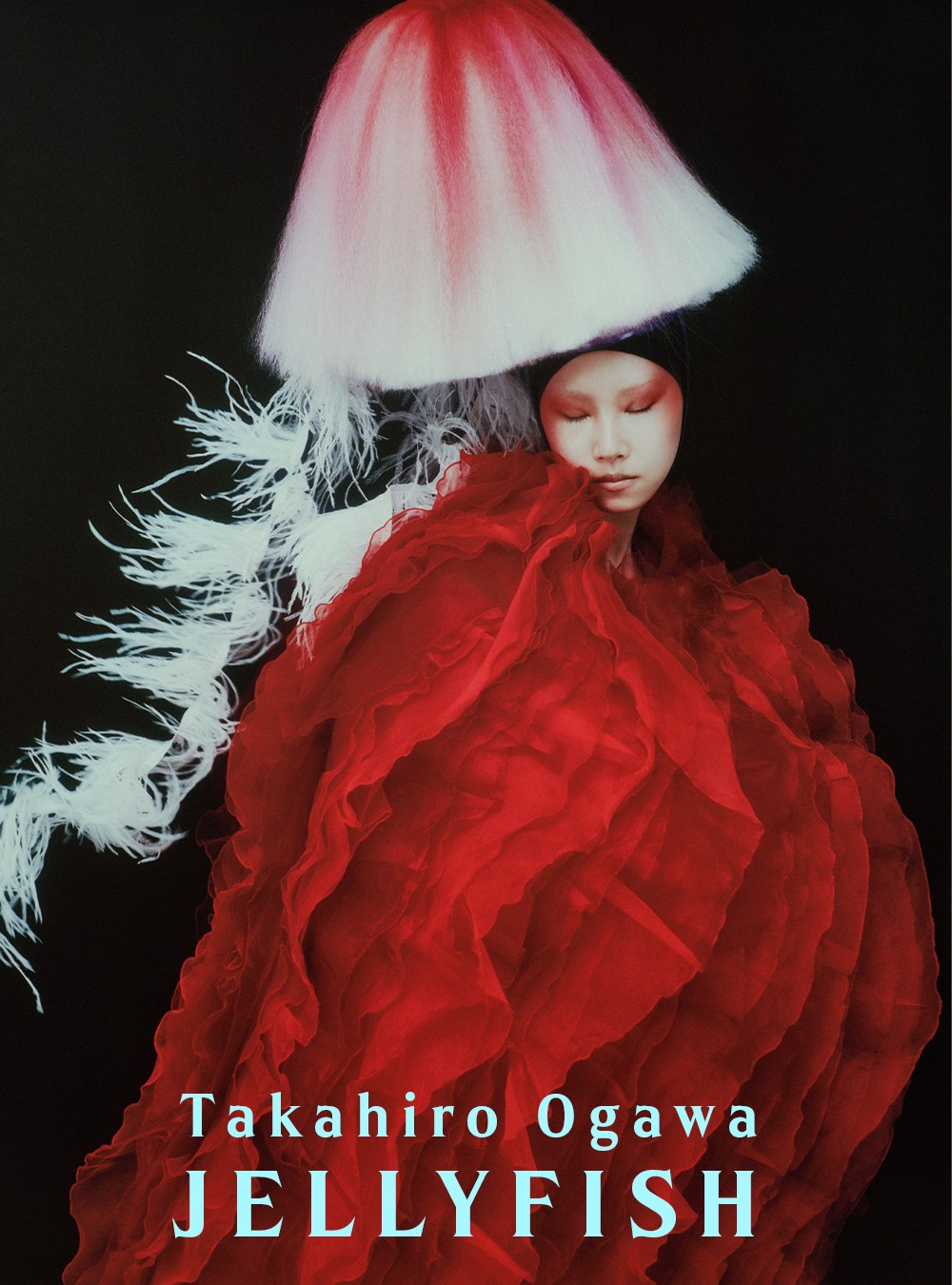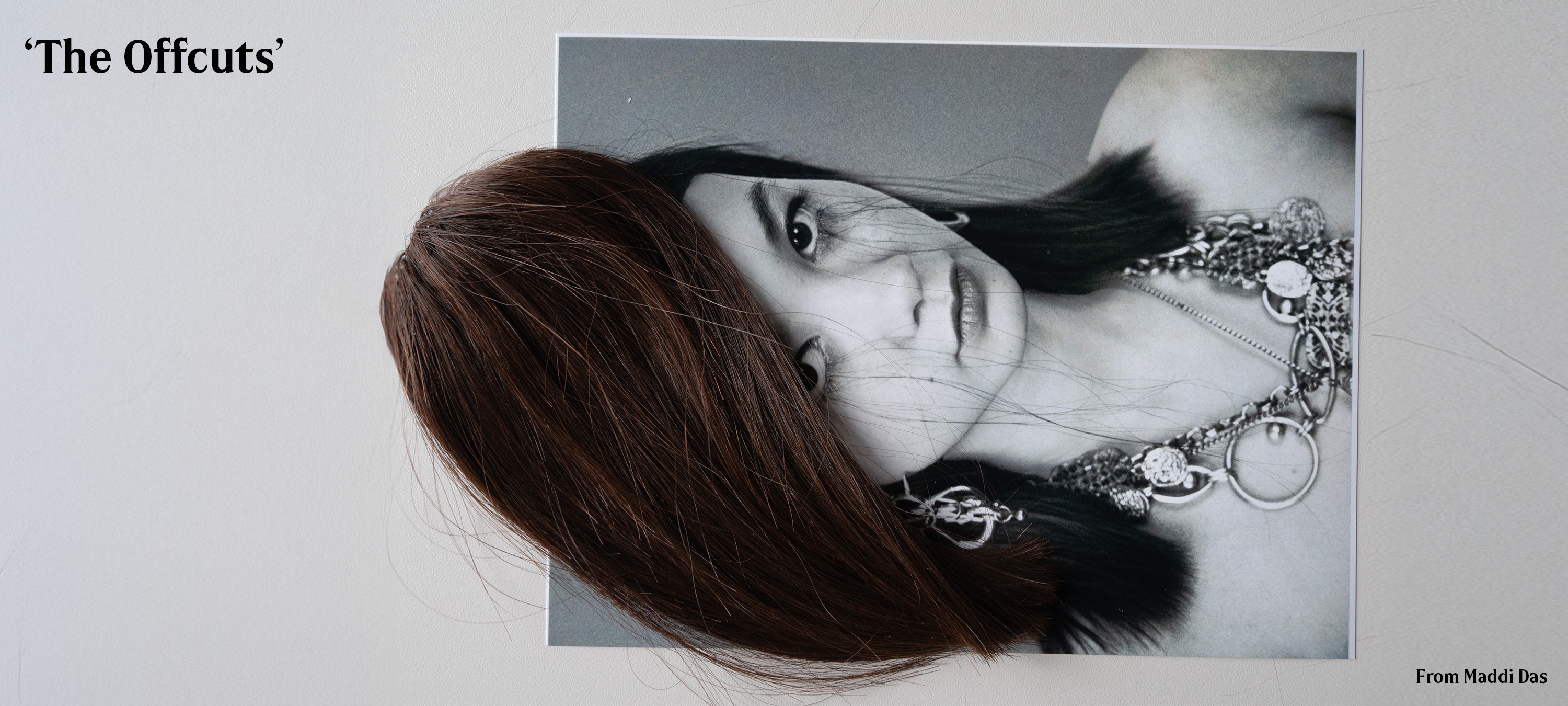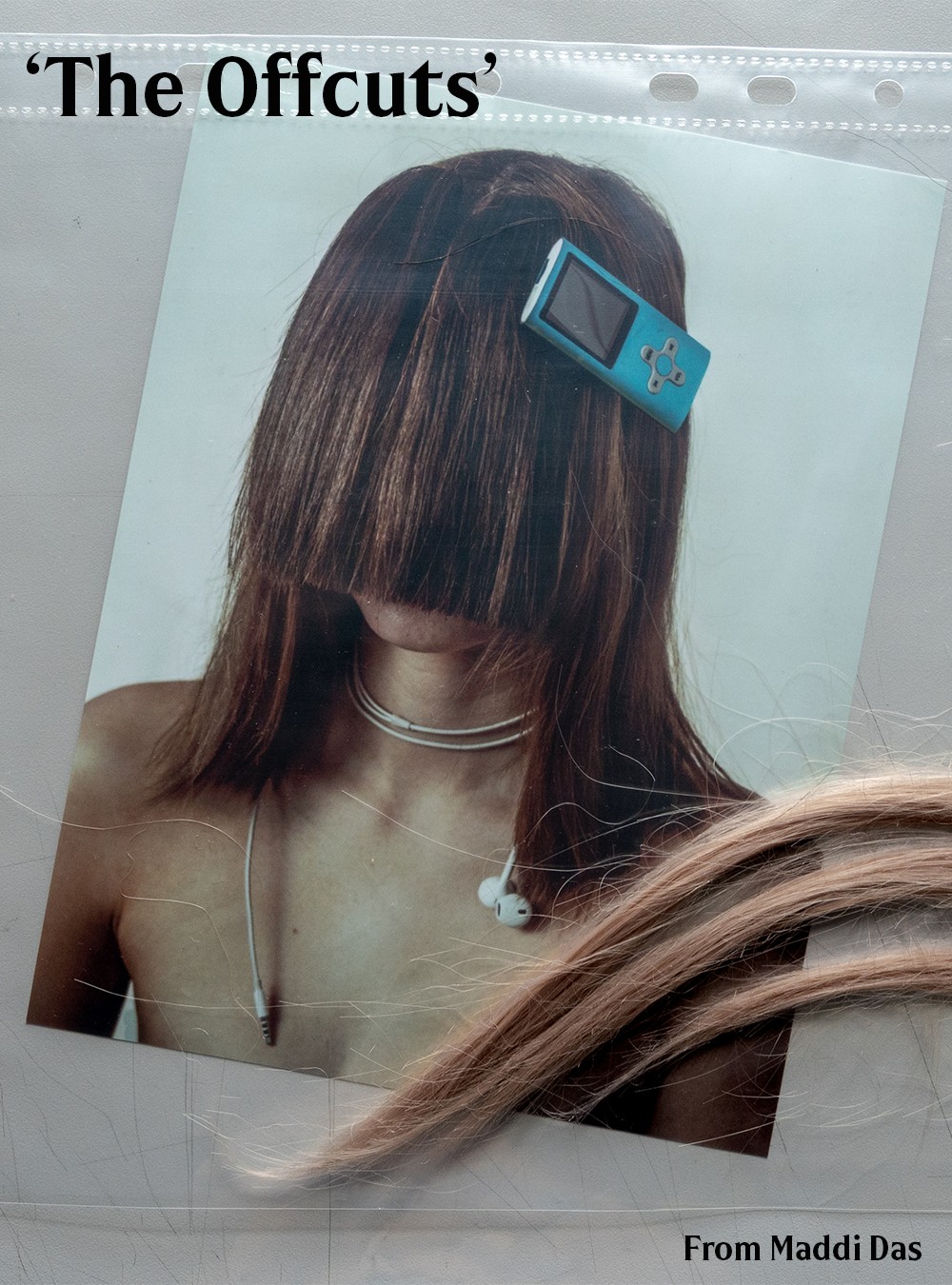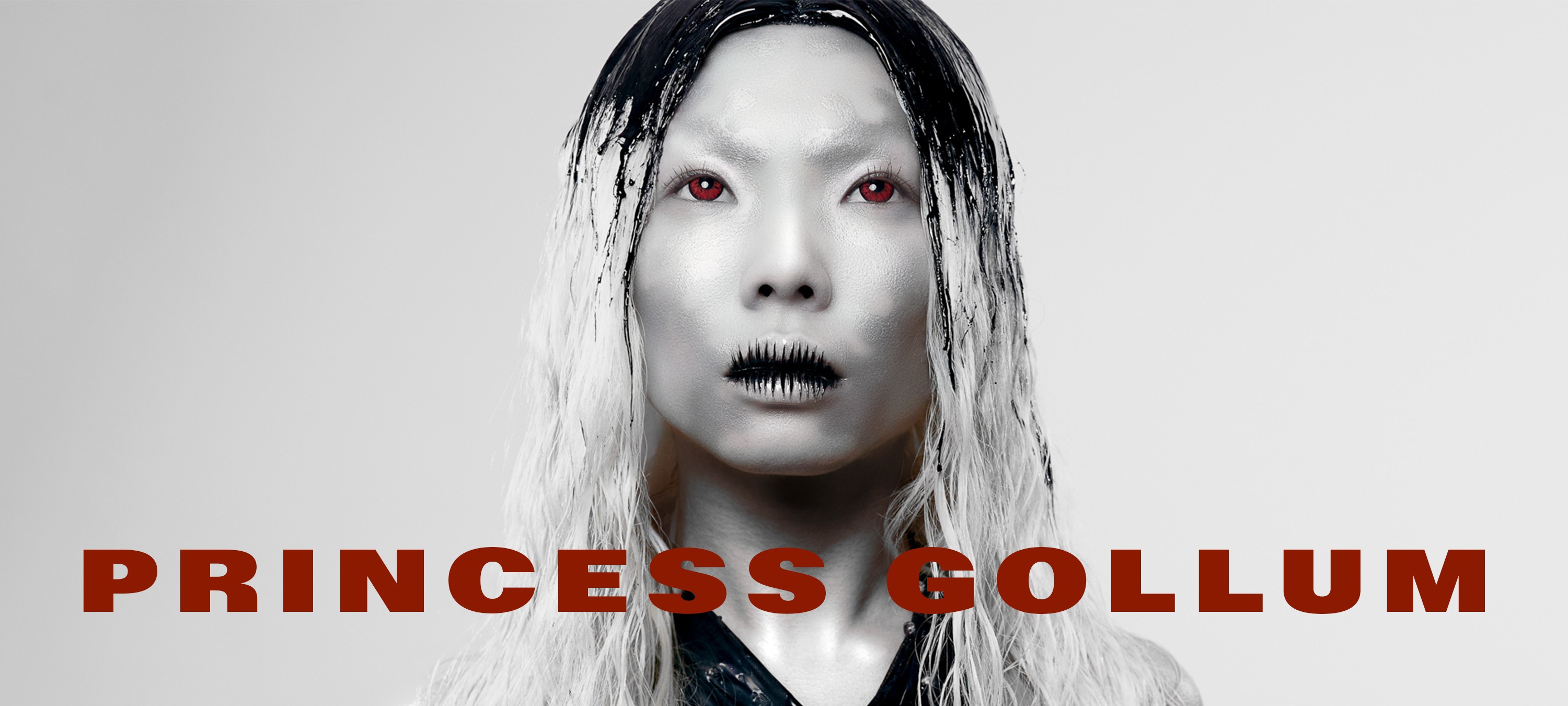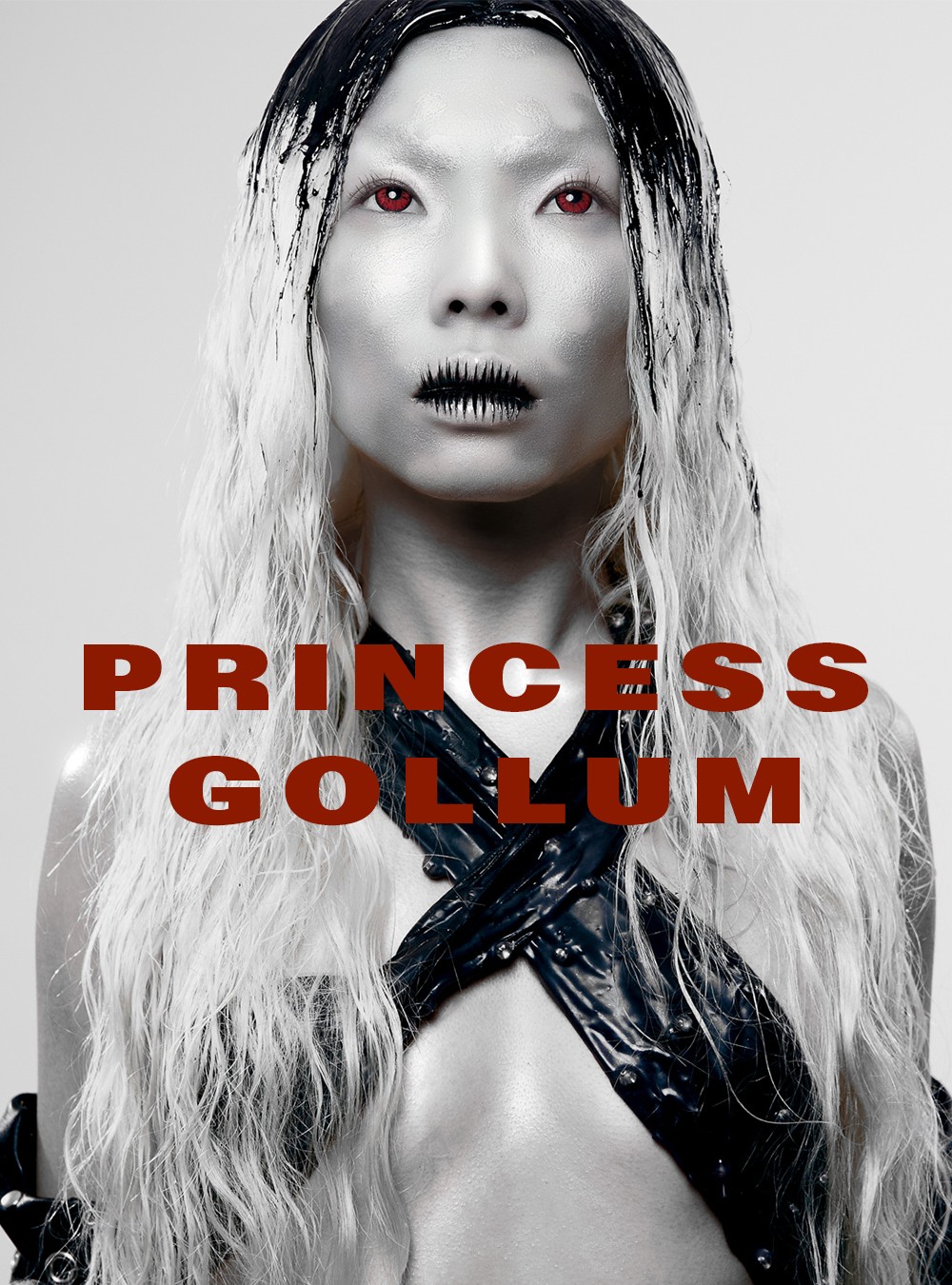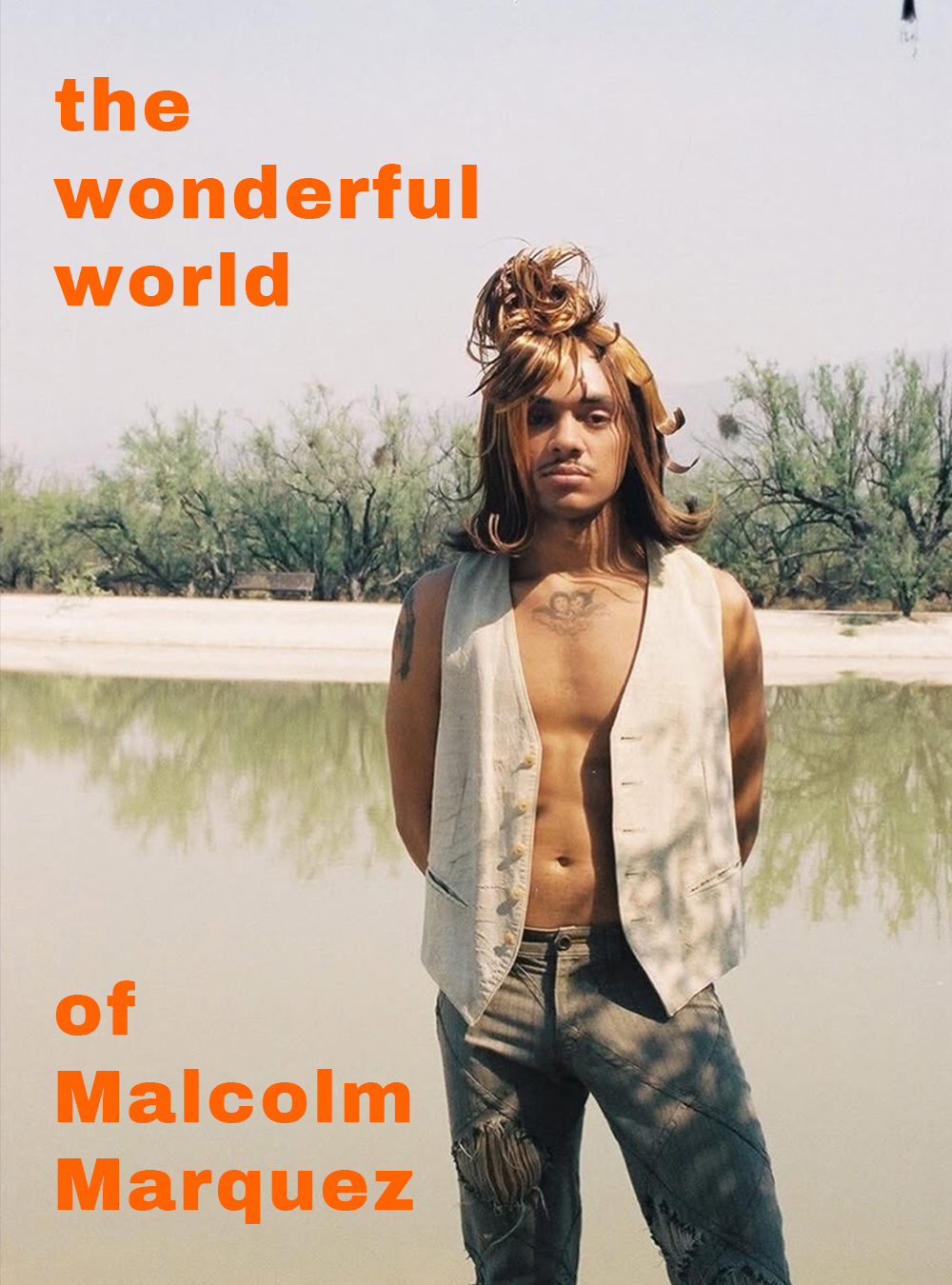PEOPLE: Hair and Felicitas Schwenzer’s nude studies have a symbiotic relationship in their expression of intimacy and emotion
Interview: Katharina Lina
Photography: Felicitas Schwenzer
Felicitas Schwenzer, who also goes by her alias Ophelia, is a photographer based in Hamburg, Germany. Aside from her artistic ventures, the 26-year-old is also currently studying to become a youth psychotherapist, and works for a research project for Hamburg’s university hospital, “So photography really is more of a side job – at least in terms of time I can spend on it.”
Schwenzer’s interest is piqued by the lines and shapes of the human form, which led her to develop tranquil nude studies, accessorised only by hair. Removed from the patriarchal gaze that renders nude bodies as inherently sexual, Schwenzer’s models depict versions of intimacy that go beyond the skin-deep: “I aim to create a desexualisation of the nude, especially female body and instead turn it into an artwork and instrument for emotional expressions.”
What drew you to photography? While I’ve always been fascinated by art and creativity, I never really dared to take the leap and create something myself, mostly because I never had the patience to stick to a craft long enough to be good at it and therefore lost interest quickly. That changed when my boyfriend mentored my first steps into photography and helped me get around throwbacks and letdowns. I couldn’t start off with professional equipment only, but also needed guidance from an experienced and skilled photographer.
"Hair provides another structure, colour and pattern, yet it isn't something foreign to the body. It can be worn and arranged like clothes or accessories, yet it belongs to the very body itself"
What is it about the body that you like exploring through photography specifically? Even though my boyfriend obviously influenced my work and skills a lot, I tried hard to make my photography distinguishable from his and to create something independent. That’s when my interest in human body shapes and nude studies developed. I am especially fond of composing with more than one person. Mirroring movements and amplifying shapes creates a whole different, sometimes even strange beauty. A body offers endless perspectives, variations and abstractions. To me, portraying a nude body is one of the most timeless, intimate, honest and pure ways of photography. There are no clothes, jewellery or make-up that tell their own story and influence the photo’s proposition. As a photographer, I’m in control of the composition, and me and the models can create something unattached, unspoiled.
Hair in relation to the body is sometimes ascribed more similarity to fabric rather than limbs. How would you say do you see hair in your photographs? Sometimes, pure skin is missing something in contrast, something darker and distinct texture-wise. Hair provides another structure, colour and pattern, yet it isn’t something foreign to the body. It’s different, but not strange. It can be worn and arranged like clothes or accessories, yet it belongs to the very body itself. It’s nothing controlled and attached from the outside, but still ornamental and gracing while staying natural.
"I'm suffering from psoriasis which especially affects my scalp. My hair helps to cover the sore, flaky and sometimes bloody spots on my skin and makes me feel protected when I feel insecure and vulnerable"
When shooting, what is your thought process with hair? Does the moment direct the hair, or does the hair direct the moment? I usually tend to quite clearly plan and direct my shoots and compositions. This also applies to hair, but it definitely is the one component during a shoot that moves the least predictably. While I still often try to compose it the way I originally intended to, hair is the thing I would most likely give in to spontaneously. It’s hard for me to give up control during shoots, but hair marks the one exception I’m willing to make. I still like to direct the moment, but hair is a great support in doing it.
Can you describe your own relationship with hair? Regarding my own hair, I’m not very experimental. Despite one short episode where I declared Victoria Beckham my style icon and wore a bob, I always had very long hair and I’m not planning to change it. Personally, I feel more feminine and tender with long hair and mourn every inch I have to cut. Sometimes my hair even gives me the opportunity to hide. Since childhood, I suffer from psoriasis, which especially affects my scalp. My hair helps to cover the sore, flaky and sometimes bloody spots on my skin and makes me feel protected when I feel insecure and vulnerable about my illness.
